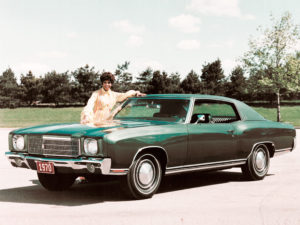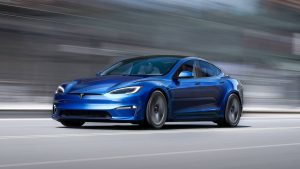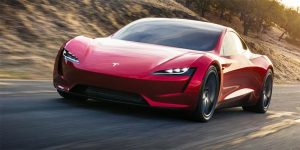Computers are everywhere. We wear them on our wrists, carry them in our pockets, and rely on them to function in a modern world. As computing evolves, automakers like Ford are using high-level technology to work to solve everyday problems.
The Dearborn, Michigan-based automaker has partnered with Microsoft to simulate the impact thousands of vehicles traveling has on congestion. They’re early in to the project, still developing the quantum computing aspects of the project, which will take the problems of today and scale them to predict the problems of tomorrow. Then, the two companies will use the information to dive deeper into possible solutions to those problems.
“Quantum computing has the potential to transform the auto industry and the way we move,” said Julie Love, senior director of quantum computing business development, Microsoft. “To do that we need to have a deep understanding of the problems that companies like Ford want to solve, which is why collaborations like these are so important.”
When rush hour happens and congestion picks up, it’s not uncommon for drivers to use various apps to change their route using traffic apps like Waze. However, these apps often route drivers the same way, creating congestion on side streets. Ideally, new computing would work to balance those routes to allow the least amount of congestion possible on all streets.
Dr. Ken Washington, Chief Technology Officer, Ford Motor Company described the problem and possible solution in a recent post on Medium.
Simply put, it’s not feasible to have traditional computers find the optimal solution from a huge number of possible route assignments in a timely manner. That’s where quantum computing can help. Essentially, existing digital computers translate information into either a 1 or a 0, otherwise known as a bit. But in a quantum computer, information can be processed by a quantum bit (or a qubit) that can simultaneously exist in two different states before it gets measured. Upon measurement, however, either a 1 or a 0 appears randomly and the probability for each is governed by a set of rules called quantum mechanics.
This ultimately enables a quantum computer to process information with a faster speed. Attempts to simulate some specific features of a quantum computer on non-quantum hardware have led to quantum-inspired technology — powerful algorithms that mimic certain quantum behaviors and run on specialized conventional hardware. That enables organizations to start realizing some benefits before fully-scaled quantum hardware becomes available.
The partnership between Microsoft and Ford started in 2018 to specifically focus on reducing traffic congestion in Seattle, a city undergoing tremendous rapid growth that is confined in its footprint by waterways and mountains.
The collaboration tested numerous scenarios in their efforts to solve Seattle’s traffic congestion, with as many as 5,000 vehicles. Each vehicle in the scenario had 10 different route choices. In 20 seconds, computing software weighed each of those suggestions and delivered a route that resulted in a 73 percent improvement in total congestion compared to traditional route suggestion methods. The result was an eight percent drop in the time of the commute.
Ford remains hopeful that future advances in quantum computing will further the company’s mission to work to reduce congestion.








